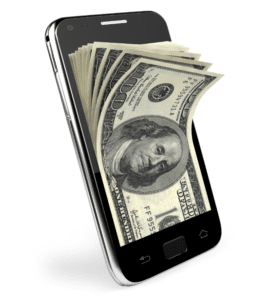With the holidays behind us, If you are not well-prepared you could end up paying unmanageable interest on credit card interest. The ability to save money is important this time of year. So, to help avoid these problems, our team at Milend, Inc. suggests that you add these items to your resolution list.
 #1. Brown Bagging!
#1. Brown Bagging!
Eating out during the work or school day is undeniably convenient. There’s no scrounging in the cupboards for something to prepare, searching for forks when you forgot yours at home or eating cold spaghetti when the office microwave is out of order.
But what’s better than convenience? Keeping money in your wallet.
The fact that packing lunch is cheaper than buying lunch isn’t surprising. What is surprising is just how much money you can save by brown-bagging it. In fact, some simple math might be enough to convince you to do away with takeout lunches permanently.
Let’s say your preferred takeout lunch is a deli sandwich with a drink. With taxes, your total is about $10. If that’s your lunch choice five days out of seven, you’re spending $50 a week, $200 a month, $2,600 each year.
What if you make that same sandwich at home? Maybe the ingredients (a loaf of bread, cheese, and sliced meat) cost you $15 up front, and they make about five sandwiches. Now your cost is $3 per sandwich, for a total of $15 a week, $60 a month, $780 a year. That’s a yearly savings of $1,820!
There’s another kind of savings that comes with bringing your own lunch: calories. While how many calories you can save depends on what you choose to bring, home-cooked meals are typically more healthful than takeout is.
No, this lunch switch won’t make you a millionaire. Still, with fewer calories and lower cost, all these savings might make that brown bag look more enticing.

#2. Need a Tip on How Much You Should Tip?
Should you tip them or simply say thank you? Discerning when to tip and how much can be stressful. Thankfully, there are generally accepted practices you can adhere to that will make this task easier.
Food and drink: For food delivery, tip $2-$4. For bartenders, tip them $1 per drink. Tip restaurant servers 15-20 percent of the bill.
Travel: Expect to give those who carry your bags, whether porters at airports or bellhops, $1 or $2 for each item. At hotels, pay special attention to the housekeeping staff. Your tip should reflect the quality of the hotel; the more expensive the accommodations, the greater the tip. Also, tip each day. The housekeeping staff may change during your time there. Lastly, read bills for room service carefully before tipping. Additional “service charges” don’t cover the tip, but a “gratuity” does.
Holidays: If you have a nanny or housekeeper, an appropriate holiday bonus is equivalent to one week’s pay. Be especially generous to the person who delivers newspapers. Keep in mind that adults, not children, are doing that job now. It’s never too late give this gift if you happen to have forgotten.
Optional tip: There are times when tipping is optional. It doesn’t hurt to give a barista some spare change as a tip, but it’s not required. You don’t need to tip someone who wraps your gifts, but it might be a nice gesture.
No tip: Not every service requires a tip. House sitters, grocery store baggers, cable installers, sports instructors, and Fed Ex delivery personnel are among the individuals who are exempt from tips.

#3. Save on Your Cell Phone Upgrade
From Samsung’s Galaxy Note9 to Apple’s iPhone XS, there’s no shortage of options for anyone looking to buy a new phone. But as technology evolves and smartphones get smarter, the price tags on these devices continue to skyrocket.
Before you part with your hard-earned cash in order to upgrade your phone, make sure you follow these money-saving tips.
Out with the old: The easiest way to save coins on your new phone purchase is to trade in your old phone. In recent years, most wireless carriers and retailers have improved and expanded their trade-in programs to make the process smoother for customers. Best Buy, for example, offers a gift credit in exchange for most used devices, including smartphones, tablets, and even video game hardware. Once you’ve traded in your old device, you can use the gift credit toward your new phone.
Sell the old: Another option is to sell your device directly to another person, who may pay more for your phone than a trade-in program would. There are a number of sites to help facilitate your sale, including eBay and Swappa. That being said, make sure you prepare for the peskier buyers who ask endless questions or waffle on sending your payment.
In with the old: The best way to save money, though, might not be the most desirable: Skip the upgrade altogether. If your phone is still working but is just a little slow, there are ways to help speed things up, like replacing your device’s battery or clearing out storage. You might not have the flashiest device this way, but the savings can make up for it.
Contact Us
For more information on common pitfalls to avoid as a first-time homebuyer or to get started on your mortgage application, please contact the expert Altanta Mortgage Lender team at Milend, Inc. at 855-645-3631.


Your Ultimate Winter Home Preparation Guide
Read more...



